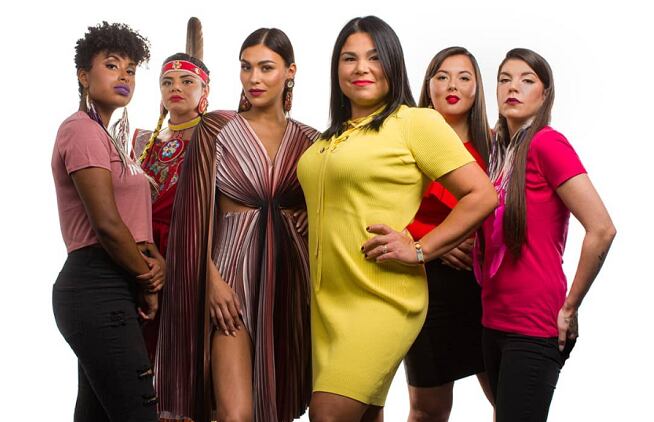“We’ve been told for too long that we’re not enough,” says Savannah Sachs, CEO of TULA Skincare, reflecting on how beauty brand content conventionally addresses consumers.
“Today,” she says, “TULA is standing up to make a change, to tell you that you are enough and to #EmbraceYourSkin, no matter what you are enough.”
Community Care in the new Self Care
With the new #EmbraceYourSkin movement, TULA joins a growing roster of cosmetics and personal care brands that are dedicated to building confidence and community.
Unilever’s Dove brand launched it Real Beauty initiative in 2004 to help women build confidence with programming and marketing that depicts and respects variety rather than a single idealized beauty standard.
Startups like EVIO and Cheekbone Beauty are also working hard to build supportive communities of and for consumers.
EVIO describes itself as “a judgment-free zone where affordable beauty - made with good-for-you ingredients - builds community fueled by kindness to encourage everyone to do the right thing, even when no one is looking.” (Learn more about the brand in this video interview on CosmeticsDesign.com.)
While Cheekbone Beauty aims “to create a space in the beauty industry where Indigenous youth feel represented and seen.” (Learn more about the brand in this video interview on CosmeticsDesign.com.)
TULA’s Founder, Dr. Roshini Raj puts the brand’s #EmbraceYourSkin movement into context, explaining how the initiative suits her founding story and the challenges of 2020: “As a practicing gastroenterologist, I founded TULA in2014 to help people feel more confident in their skin after I discovered first-hand the positive benefits probiotics had on my patients’ skin, in addition to gut health, resulting in overall wellbeing and increased confidence,” says Raj is today’s media release.
“I’ve seen firsthand how a great skin-day can impact my patients’ mood and at TULA we are proud to empower our community to feel confident in their skin, especially as more consumers have been exploring skincare as a way to create rituals and routines that bring happiness during this time of great change.”
TULA Skincare is changing the image of beauty
“Our Confidence Survey results are alarming. 70% of customers say that beauty ads degrade their self-confidence – a key component that TULA as a brand is on a mission to change,” explains Sachs in today’s release. And this is why the brand is making some changes to how TULA’s imagery and messaging speaks to consumers.
“Today, with our #EmbraceYourSkin initiative,” she says, “we are taking a stand and igniting our promise to inspire and empower everyone to embrace their skin. We are also committing to no retouching on TULA’s brand marketing photos while shifting the conversation on beauty to be more positive.”
The brand has promised to “reimagine imagery, reimagine language, reimagine social norms, and reimagine skincare based on what is most important to the TULA community,” according to today’s media release.
The brand will be removing imagery that doesn’t meet this mission and has already looked back at some 6,000 social media posts to ensure they reflect the right message. TULA has plans to engage its influencer community around confidence and empowerment, and is creating garments with positive messaging in hope that photos that reinforce these messages will circulate widely.
And, as Sachs mentioned, TULA is also committed to a no-skin retouching policy for it marketing photography, a strategy that will also make use of a new Real Glow Badge to indicate as much.
Photoshopping has been critiqued before and several brands, retailers, and media have pledged to phase out the practice in beauty advertising. For instance, the hair color startup Madison Reed did so in 2018 and Dove announced plans to phase out photo manipulation that same year.




